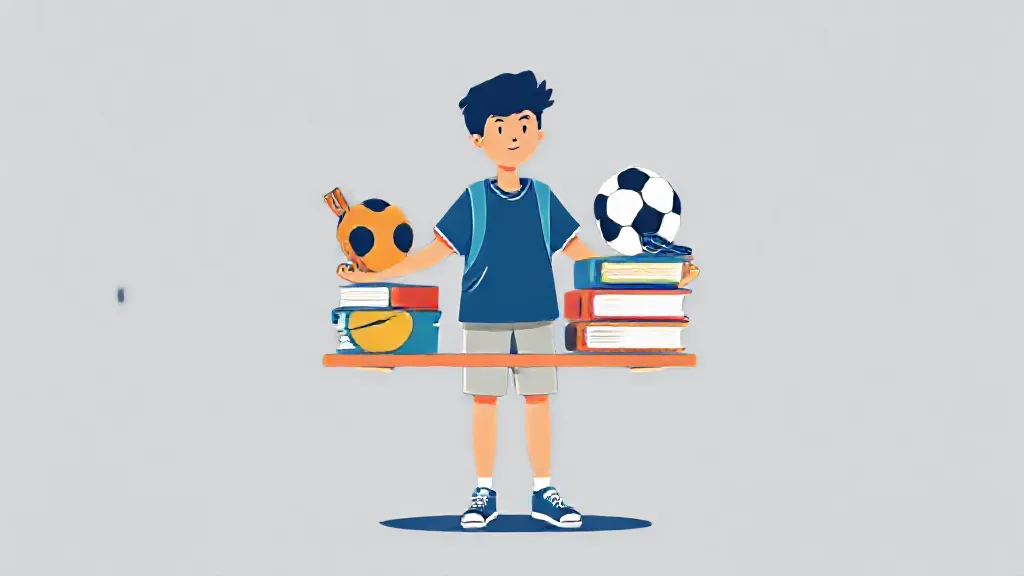In the world of student-athletes, balancing the demands of sports and academics can be a challenging endeavor. This article delves into the essential strategies and keys that can help young athletes manage their time effectively, ensuring that they excel both on the field and in the classroom.
Understanding the Dual Commitment
Student-athletes are often required to commit significant time to their sport, which can conflict with their academic responsibilities.
Understanding that both sports and academics are important is the first step in achieving a balance. This dual commitment requires careful planning and prioritization. Athletes must recognize that excelling in their sport can open doors for academic scholarships, while strong academic performance can provide opportunities for a future beyond sports.
Time Management Techniques
Effective time management is crucial for student-athletes. Creating a structured schedule that allocates specific time blocks for practice, study sessions, and rest can help maintain balance. Tools like planners or digital calendars can assist in visualizing commitments and deadlines.
For instance, the Pomodoro Technique, which involves focused work sessions followed by short breaks, can enhance productivity during study time, allowing athletes to maximize their academic performance without feeling overwhelmed.
Setting Realistic Goals
Setting achievable goals is another key component of balancing sports and academics. Athletes should establish short-term and long-term goals for both their sporting and academic pursuits.
For example, an athlete might aim to improve their performance in a specific event while also striving to achieve a certain GPA. By aligning their goals, student-athletes can create a sense of purpose that motivates them to excel in both areas.
Utilizing Support Systems
Having a solid support system is essential for student-athletes.
This includes coaches, teachers, family, and peers who understand the unique challenges faced by those juggling sports and academics. Open communication with coaches about academic commitments can lead to more flexible training schedules. Additionally, study groups with teammates can foster a collaborative environment where athletes can help each other succeed academically.
Prioritizing Health and Well-being
Maintaining physical and mental health is vital for student-athletes striving for balance. Adequate sleep, proper nutrition, and regular exercise contribute to overall well-being, enabling athletes to perform better both in sports and academics. Stress management techniques, such as mindfulness and meditation, can also be beneficial.
By prioritizing their health, student-athletes can enhance their focus and resilience in both domains.
Leveraging Academic Resources
Many schools offer academic resources specifically tailored for student-athletes, such as tutoring programs and study halls. Taking advantage of these resources can help athletes stay on top of their studies while managing their sports commitments.
Additionally, seeking guidance from academic advisors can provide valuable insights into course selection and scheduling that accommodates athletic training and competitions.
Embracing a Growth Mindset
Adopting a growth mindset can significantly impact a student-athlete's ability to balance sports and academics. This mindset encourages individuals to view challenges as opportunities for growth rather than obstacles.
By embracing this perspective, student-athletes can develop resilience, allowing them to navigate setbacks in both their athletic and academic journeys without losing motivation or confidence.
Reflecting on Personal Experiences
Finally, reflecting on personal experiences and outcomes can provide valuable lessons for student-athletes. Keeping a journal to track progress in both sports and academics can help identify patterns, strengths, and areas for improvement.
This self-reflection allows athletes to adjust their strategies as needed, ensuring they remain on the path to success in both arenas.
In conclusion, balancing sports and academics requires a multifaceted approach that includes effective time management, goal setting, and support systems. By prioritizing health, leveraging available resources, and maintaining a growth mindset, student-athletes can achieve success both on the field and in the classroom, paving the way for a bright future.
